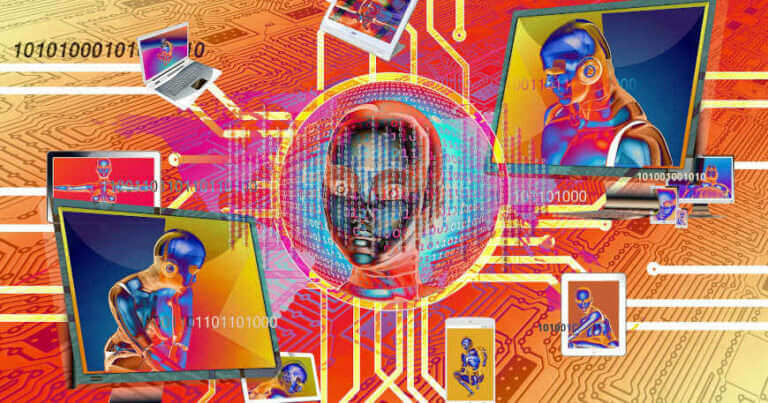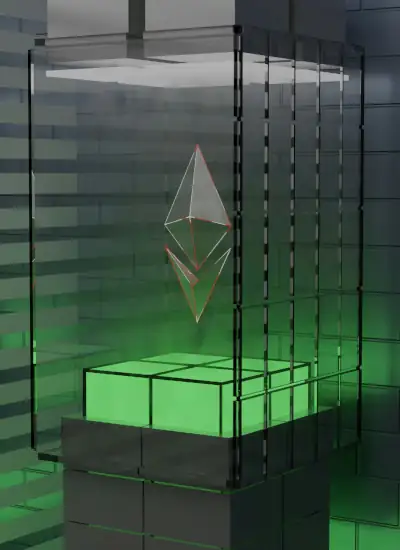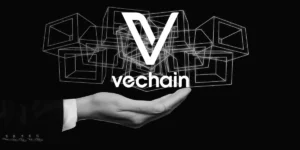
Machine Learning and Blockchain technologies are two independent and innovative inventions disrupting the world of data science today. The advancement in technology through the use of data has necessitated the introduction of more efficient systems to get better security and make better decisions based on the accrued data. While both blockchain and ML can work separately, a combination of both can stir a game-changing shift in the rich resources that data represents.
This article will take a look at how blockchain and machine learning can combine and in what specific ways they can help impact industries.
Ready for the exposition? Then, ride along with us.
Benefits of combining machine learning & blockchain
On our journey of how to learn blockchain technology, we are now looking at KI platforms. We have established that machine learning and blockchain are two of the most innovative computer science inventions of the 21st Century. It is therefore worth mentioning that a fusion of both technologies can herald a tremendous system of efficiency under various use cases. Furthermore, if you become a machine learning engineer you’ll get very well paid as it is one of the most-in-demand Artificial Intelligence jobs.
Blockchain technology is a decentralized and distributed ledger for storing information in a secure, easy, and efficient manner. Data is a very sensitive resource in today’s digital ecosystem and is highly prone to undue exploitation or manipulation. This exploitation can either be done by a corporation for profits, or by cybercriminals and irrespective of the model, consumers are always at a disadvantage. Blockchain technology helps remove these inconsistencies in data management and grants transparency to how customer’s data is handled. This is only one reason why so many people invest in blockchain.
Machine learning (ML) and its variant forms including deep learning involve the use of algorithms to create ML models. These models are capable of predicting the outcome of action based on past patterns. To showcase machine learning in action, let us look at our daily activity of surfing the net. If you use your Chrome browser to check the details of a football match today, and you repeat the same action a couple of times. Google search engine algorithms will automatically start suggesting related content to you after some time. The artificial intelligence adopted has learned from your actions over time.
Machine learning involves the use of big data, creating a point of convergence with blockchain technology. Based on the revolutions of both technologies and their inherent merits, integrating them both within the same system can stir a new shift in how the world generates, analyze and use data. If you’re confused about all these terms you can always find explanations on our blockchain terminology page. But for now, some of the advantages of combining these two technologies are outlined below.

Unlock the Code: Master Blockchain Programming!
Dive into the world of decentralized technology with our comprehensive online programming courses. Learn at your own pace and get:
Access – to expert instructors.
Interactive – coding exercises.
Vibrant – community of like-minded learners.
Certified – receive your recognized diploma.
BECOME A MACHINE LEARNING ENGINEEREnhanced security & transparency
One of the fundamental uniqueness and benefits of blockchain technology is its security. Data are stored in blocks and sealed using cryptographic encryption which makes such data impossible to be manipulated. In fact, the addition of data to the block follows a consensus model that is difficult to boycott. Besides this security advantage, the stored data are easily visible to anyone with access (depending on the blockchain type), introducing a high level of transparency into data systems.
Datasets collected for machine learning predictive automation can be stored on the blockchain in real-time. Such data collected which may be from highly sensitive sources can be secured with blockchain and the decentralized model of the tech will help build transparency in the data handling process by all entities of interest. This described benefit is how blockchain bolsters data security in machine learning.
Let us flip the coin to see how machine learning helps boost blockchain security. It is worth noting that any digital system created by man can also be breached by man. While blockchain technology lowers this possibility due to its distributed nature, AI machine learning models can be trained to help detect the likely source of any breach or data compromise. Once a potential point of threat is corrected isolated well beforehand, the impact of such threat can easily be curtailed.
With both techs working together, security, transparency, and the points of network failures can easily be identified.
Continuous improvement (without human intervention)
Blockchain and machine learning when working together can bring about continuous system improvement without human intervention. It has been noted that ML tracks your behavior over time to accurately predict your next course of action, now let us consider a typical use case scenario.
The Ethereum blockchain notably supports the growth of smart contracts and other decentralized applications (DApps). These applications can be used to conduct such financial transactions as lending, liquidity farming, and more. From these activities, data is generated, and these smart contracts can be trained to execute automatically when some conditions are met. While this may sound like the core function of smart contracts, the operations can be made more hassle-free using ML models. In fact, the generated dataset can be trained to recognize default patterns that can pend some user’s transactions instead of having to deal with the user’s inability to pay.
Many organizations now also use blockchain networks for data sharing or other functions. Some redundant work that is being done can be automated through machine learning and improved over time to prevent repetition. Repetitive cycles in data handling and management can be broken, fixed, and enhanced through machine models.
Lower maintenance costs
Start-ups or firms that incur maintenance costs on a regular basis can find solace in blockchain technology and machine learning. Maintenance schedules can be registered on the blockchain to let everyone responsible for each particular task keep track of when they may need to act. ML can come in to help predict the right timeframes maintenance should be carried out, based on collected data.
Combining the qualities of both blockchain and machine learning, every personnel or service provider will be kept abreast of when they are needed and the exact timing when maintenance should be carried out. This too information can help prevent system breakdown and directly help reduce cost.
Energy Usage Reduction
Data mining is typically an energy-intensive activity. From energy requirements in data centers to cryptocurrency mining using high-powered CPUs and GPUs, there has been a constant clamor to re-engineer these data mining processes to be more energy efficient.
Google, through the use of its DeepMind Internet of Things (IoT) and Artificial Intelligence, has been able to reduce the energy consumption in its data centers by almost 30%. If ML can contribute as much to the broader data centers, there is a potential it can be used to reduce the high energy consumption of Bitcoin and other Proof-of-Work (PoW) cryptocurrencies.
General Data Management
Having established that blockchains are digital ledgers that store information, and ML as a tool to predict actions, a combination of both can help improve data management. The data systems will not only be stored securely, auditing, sharing and other data manipulation functions can be done with ease.
If you look at providers like Microsoft, they even offer Machine-Learning-as-a-Service on Azure. Cloud computing can be integrated into neural networks as well as on public blockchain networks. Cryptography and python as one of many coding languages are opening new spaces for future applications.

Unlock Your Business Potential with Certified Blockchain Consulting!
Dive into the future of technology with our team of certified blockchain experts. Simply pick the service you need:
Personalized Advice – tailored to your business needs.
Comprehensive Training – for you and your team.
Development Services – innovative solutions from the whitepaper to the finished blockchain.
Programming – with capabilities and tools to succeed.
TALK TO THE EXPERTS TODAYBlockchain & machine learning use cases in key industries
Blockchain and machine learning use cases transcend more than one industry. In this section, we will explore a few use cases where both technologies can be integrated into key industries. Let’s ride on!
Supply chain & logistics

The supply chain and logistics industry use a lot of data which, if not properly handled can complicate operations. Blockchain technology can be used to keep the record of goods as well as the efficient tracking of products through its open-source framework.
With blockchain, items can be tracked from the points of production, down to the end-users. The infusion of machine learning into supply chains and its efficiency was showcased when IBM partnered with Twiga Foods, to introduce blockchain-based microfinancing tools. The usage of ML stirred the success of the venture, as it was used in predicting creditworthiness based on data collected from mobile devices.
Manufacturing

Blockchain technology can help in automating the various aspects of a typical manufacturing outfit. With blockchain, resource inventory can be transparently stored, while the technology also helps in enhancing production, maintaining database security, guaranteeing quality control, and aiding compliance checks. With the integration of ML, maintenance schedules can be well tracked and predicted, all working in tandem to avoid parts damage and overall cost. Predictive algorithms are used.
Energy & utilities

Blockchain technologies are also gaining traction for use in energy exchanges. There is a growing number of startups using blockchain to improve energy consumption. While IOTA is one of the firms that has introduced blockchain-backed energy production and consumption in a peer-to-peer fashion, the Sun exchange in South Africa has built a solar distribution and payment network using blockchain ledger technology.
Healthcare

Health records are now being stored on the blockchain to promote data security and easy sharing amongst trusted personnel. While blockchain has its advantages in playing these highlighted roles, a merger with ML will even make the tech yield more results. Machine Learning algorithms can help predict the drug use prescription for a particular ailment, and aid decision-making in certain data-driven medical diagnoses.
E-Commerce

Top e-commerce companies like Amazon, Walmart, JD.com amongst others make use of a large amount of data gathered from their platform users or customers. These data can be safeguarded on the blockchain, payments, item delivery and conflict resolution can be boosted through the use of smart contracts built on the blockchain. The use of predictive tools as offered by ML can take customer’s shopping experience to the next level. When your shopping preferences are known over time, suggesting new products or services which you may not be able to search out will be easily laid bare for you.
Blockchain vs machine learning: which is better?
Blockchain and machine learning technology are typically two unique inventions with specific use cases. There may be no need or basis to compare the two as each one has certain benefits depending on the use case, and in certain situations, they can be combined as mentioned earlier. The two as shown works better to enhance the operations and efficiency of a data-backed system.
Key Takeaways
Blockchain technologies and machine learning are two unique data-focused innovations changing our world today. While both are arguably revolutionary, they are also futuristic by all means. With the proven efficiency both offer when used individually, a combination of both has a host of merits that transcends data security and transparency. With both blockchain and ML merged to operate together, data scientists or firm administrators can be better or informed decisions based on the latter’s predictive capabilities.
Watch webinars on our website to find out more or talk with one of our experts to find out how we implement machine learning and blockchain.
Learn All About Blockchain!
Book a Blockchain Training
Watch our Webinars
Enroll in Blockchain Courses
Become a Pro yourself
Get Free Blockchain Tips!
Get monthly blockchain tips.
On top, you’ll get our free blockchain beginners course right away to learn how this technology will change our lives.


